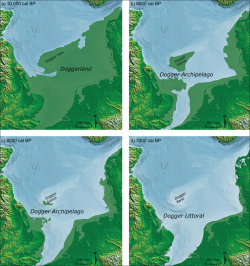
Speculation about Nostradamus and his alleged predictions has resurfaced in light of recent global conflicts, including Vladimir Putin’s invasion of Ukraine. Sensational interpretations claim that the famed 16th-century seer foresaw events leading to World War III, but closer examination reveals these claims rely on vague, retroactive interpretations rather than concrete foresight.
The “Great War” Passage
One passage making the rounds online is cited as a forewarning of global warfare:
“Seven months the Great War, people dead of evil-doing. Rouen, Evreux shall not fall to the King.”
Tabloids and conspiracy theorists have latched onto this text, suggesting it predicts a seven-month war of massive destruction, with some linking it to ongoing tensions in Ukraine. However, like many of Nostradamus’s writings, this quatrain offers no clear details that connect it specifically to current events.
The geographical references—Rouen and Evreux—remain ambiguous, and the timeline of “seven months” has no direct correlation to any modern military strategies or outcomes.
The Famine Prediction
Another troubling claim stems from Nostradamus’s alleged forecast of famine, often quoted as follows:
“No abbots, monks, no novices to learn; Honey shall cost far more than candle-wax. So high the price of wheat, That man is stirred. His fellow man to eat in his despair.”
This grim picture of food shortages and rising prices has been linked to economic crises and the threat of global conflict. While fears of famine due to disrupted supply chains or climate change are legitimate, it’s a stretch to claim Nostradamus specifically foresaw these issues.
The phrasing is generic enough to apply to numerous historical and future events, such as famines throughout the Middle Ages or modern economic recessions.
The Nostradamus Effect: Vague Predictions as Postdictions
The key to Nostradamus’s enduring legacy lies not in his ability to predict the future, but in how his cryptic verses can be interpreted after the fact. This phenomenon, known as postdiction, allows readers to retroactively fit his words to past events, lending the illusion of prophetic accuracy. For instance:
The passage interpreted as predicting Hitler’s rise reads:
“From the depths of the West of Europe, A young child will be born of poor people, He who by his tongue will seduce a great troop; His fame will increase towards the realm of the East.”While evocative, this verse offers no details that could have warned contemporaries of Hitler’s identity or actions.
Why Nostradamus Predictions Persist
Nostradamus’s predictions endure largely because of their ambiguity and the human tendency to find patterns where none exist. His writings use broad, metaphorical language that can be reinterpreted to match countless scenarios. Additionally, modern claims about his work often take passages out of context or distort their original meanings to fit a specific narrative.
What Nostradamus Actually “Predicted” About Putin and World War III
The truth is, Nostradamus predicted nothing specific about Vladimir Putin, Ukraine, or World War III. The references being cited are overly vague and can be retrofitted to nearly any global conflict. His cryptic verses are often interpreted in hindsight, rather than providing any genuine foresight.
While it’s tempting to view Nostradamus’s quatrains as prophetic warnings, they are better understood as a reflection of his time, crafted in language deliberately open to interpretation. The fears surrounding global tensions and the potential for large-scale conflict are real, but attributing them to Nostradamus adds little substance to the discussion.
Got a reaction? Share your thoughts in the comments
Enjoyed this article? Subscribe to our free newsletter for engaging stories, exclusive content, and the latest news.








Leave a Comment